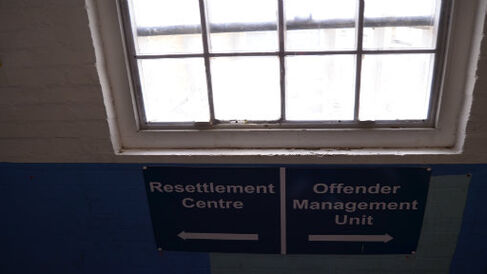Julie Laursen Blog 2

When your next of kin is a professional
The entry/exit/post-release sub-study is quite ambitious because we try to interview the same people upon their entry into custody, again just before their release from prison (which are often not the same as they entered) and then post-release from prisons in England & Wales and Norway. This blog post is about interviewees’ contact information and what this tells us about their levels of deprivation prior to, during and after imprisonment.
When we interview people for the second time (in the ‘exit’ phase of the sub-study), we ask them to give us contact details of the people they feel closest to, the people who will always know where they are. Some people give us their own contact details, but they do not always remember their phone numbers or email addresses. Many interviewees give us contact details for family members, but some of them lead incredibly challenging lives outside the prison walls; often, they are homeless, estranged from their families and without any stable means of sustenance as well as without any family or friends to contact. In these cases, we are sometimes given contact details of public agencies such as the police, probation, social services or the like instead of relatives or friends’ telephone numbers.
An example is one of my female interviewees who gave me a contact number for a non-governmental organisation that works with women in prostitution as well as a number for a police officer in her local hometown. Those professionals were the only two people she could think of who would always know where she was. When I phoned the organisation to find her, they told me that she was back in prison.
These contact details tell us something very significant about the volatility of some prisoners’ lives. So far, this seems to be most prominent in England & Wales, where levels of deprivation seem much deeper than in Norway where I have only once interviewed a prisoner who had no contact person other than his social worker.

We have only just begun thinking and writing about this, but perhaps the contact information (or lack thereof) also tells us something about what we are calling the ‘depth’ (Downes 1988; McDermott 1995) and ‘breadth’ (Crewe 2015) of imprisonment in both countries. It is not necessarily the case that prisoners in Norway are granted more opportunities to stay in touch with family and friends - indeed; they often have shorter visits and less allowance for phone calls than their English counterparts do. However, the levels of deprivation prior to entering custody seem less severe than in the UK, sentences are much shorter (the average sentence length is three months) and the ‘breadth’ or informal consequences of imprisonment seems to be less consequential as well. These aspects of the two penal fields will obviously bear consequences on prisoners’ lives, and an ongoing aspect of our study is to understand exactly how they do so.
Dr Julie Laursen is a Research Associate in the COMPEN team, Institute of Criminology, University of Cambridge.
